By clicking submit, I consent to my personal data being collected, stored, and processed by Think Pacific in accordance with our Privacy Policy.
Coral Transplantation - Reef Resilience Project - Fiji
Our 1-month marine project is a challenging and purposeful team adventure jam-packed with culture, new perspectives and self-developing experience.
Have you ever wanted to live island life whilst having a meaningful impact? This is an entirely unique opportunity to live and breathe rural, coastal Fijian life whilst immersing yourself in Fiji’s natural beauty, all whilst actively help coral reefs adapt to increasing temperatures due to climate change in Fiji by supporting coral focused adaptation within LMMAs.
- Meaningful 1-Month program in the Fiji Islands
- In partnership with Corals for Conservation, Fijian Government Ministries and registered Youth Groups.
- Total cultural immersion in a rural village.
- Live with a Fijian family in rural Fiji.
- Advance UN Sustainable Development Goals & Fiji’s National Development Plan.
- Develop ‘soft skills,’ cultural intelligence and leadership skills that employers value.
- Support the development of Fiji’s future leaders.
- Project includes; food, accommodation, 24/7 in-country support, domestic travel, charitable donation. (Flights not included).
- Expedition costs from £1,595 / $2,895 AUD for 16-Days in Fiji. (See costs below)
- University scholarships & bursaries are available – Learn More Here.
Join a Discovery Session 💻
Attend a live webinar hosted by a member of our team
Think Pacific Discovery 
Monday’s 5pm [GMT – London] / 12pm [EST – New York] (Register Here)
Monday’s 2pm [FJT – Suva] / 12pm [AEST – Brisbane] (Register Here)
Projects in Fiji 
Biweekly on a Wednesday’s 4pm [GMT] / [11am EST] (Register Here)
Biweekly on Thursday’s 2pm [FJT ] / 12pm [AEST] (Register Here)
Can’t make a live session? Watch a Recording Here
Whether you’re looking for a once-in-a-lifetime experience or to enhance your studies, on a Think Pacific project you can;
- Experience; Gain hands-on service learning or work placement experience.
- Contribution; Make an impact on sustainable development goals.
- Challenge; Expand your comfort zone and throw yourself into village life.
- Learn; Learn about a new culture by living ‘vakavanua‘
- Skills; Develop ‘soft skills’ such as teamwork, communication & leadership.
Challenge + Cultural Immersion + Contribution = Huge Personal Growth
Our Coral Transplanting project is unique in how and why it is delivered. It is the product of the work, the research and the aims and objectives of Corals for Conservation, and we as Think Pacific are in a position to support the progress of the work under Dr Austin Bowden-Kerby.
The project is a direct collaboration between two organisations, with a shared vision.
Corals for Conservation is the innovation of Dr Austin Bowden-Kerby, the founder of C4C and the UNESCO endorsed “Reefs of Hope” Decade Action. Raised in the South Pacific and USA, Austin is now a pioneer in the field of coral reef restoration, having worked in both the Pacific and Caribbean for over 35 years. He now leads training workshops and has established coral recovery sites in five Caribbean and 8 South Pacific nations.
You will work under the guidance of C4C and under the care of Think Pacific.
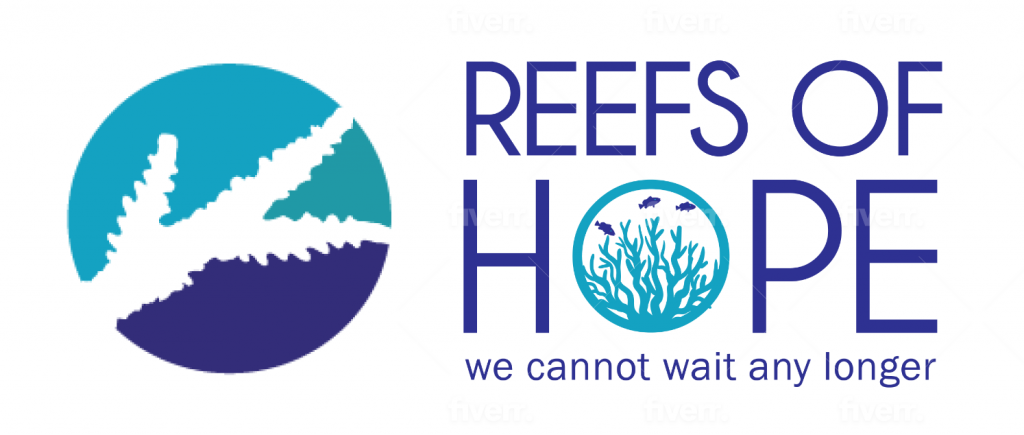
Corals for Conservation has been working in Fiji and the region on community-based management and participatory governance of natural resources for decades, with C4C staff being involved in the restoration of the first no-take tabu areas in generations in Cuvu District, Fiji in 1999. The project restored long-dormant cultural practices and spread from community to community throughout Fiji and into the region, with presently over 400 LMMAs established in Fiji alone.
In 2009, C4C was founded with the goal of developing sustainable livelihoods and nature-based solutions in support of these locally managed areas (LMMA’s). Progress thus far in Fiji and the region includes projects in “Happy Chickens” (Fiji, Vanuatu, Kiribati), chocolate production, permaculture, seaweed farming (Fiji, Kiribati), giant clam restocking, sustainable betel lime production (Solomon Islands), and community-based tourism. From 2016-2020, C4C carried out the Kiritimati Atoll endangered coral recovery project, and in 2023 the first coral nursery of bleaching resistant corals was created by indigenous youth in Fiji during a severe mass bleaching event. In 2024 a major advance occurred with the creation of the largest coral rescue nursery in history, with over 1,300 heat adapted corals, while the corals left behind mostly died in the marine heat wave in temperatures >35C
The project builds on the progress made in C4C’s Reefs of Hope Programme. This “Reefs of Hope” paradigm was endorsed by UNESCO as an Ocean Decade Action in February 2024. https://oceandecade.org/actions/reefs-of-hope/ .
This UN endorsement in essence establishes our coral-focused strategy as the first climate change adaptation plan to save coral reefs from increasingly severe marine heat waves. We must further develop model training sites as well as a media-based training programme in the methods and strategies, to include means of management and supervision, balances, and controls, and proper monitoring, enabling community and resort involvement in the work so important to their well-being and survival.
This partnership takes advantage of the strong foundation Think Pacific has with key Ministries and local communities and allows the upscaling of the work already being done in Fiji and to start working in priority areas such as in the Ra, Tailevu, Ba and other provinces. While some C4C sites are funded by grants, some sites (Naidiri, Malomalo) who have maintained no take zones for some 17 years are not funded and therefore funding these aspects is important in continuing the work.
The goal of the project will be to place coral reef dependent communities at the forefront of saving coral reefs from collapse due to warming seas. Key to this will be the involvement of community elders’ support and the training and empowerment of local youths to carry out the implementation alongside international volunteers. Experience is that knowledge spreads from community to community, and local initiative can spread the work and carry forward amazing transformations. However, the work must be done correctly at the beginning, and with training in diverse sites, to ensure that the model adopted is both adaptable and appropriate.
Each project will involve and train local youths and must lead to the formation of a I-Yaubula committee in each community if the committee has not already been established. In the case that the committee is active, having key youth members in the committee will be key in ensuring the sustainability of the project.
Once the project ends, the site becomes a C4C site and will be added unto C4C project sites that will be monitored by the C4C team
Say goodbye to everyday life and arrive into the tropical Fiji islands. You will land at Nadi Airport, meet your team and your leaders and begin preparing for your project ahead
Every expedition starts with a 3-day briefing at a resort. This is the time for you to acclimatise, learn skills for project, prepare for life in the village and learn about programme objectives.
Leaving your briefing, you will travel to a remote traditional Fijian community. Depending on your village, this could be a truck to a mainland coastal area or an overnight ferry to an outer island.
Arriving into your Fijian village is an exciting and nervous moment. Every door is open in a Fijian community and the generosity, warmth and genuine excitement of the local people is profound. This is where you will meet your host family for the first time.
‘Vakavanua‘ translates to ‘in the way of the land.’ After village orientation, some of your greatest experiences will be the simple activities of daily rural Fijian life, learning from your host family and surrounding community through true and unaltered immersion.
Contribute towards project aims and initiatives: work with Fijian youth towards the Project Based Work in field work and village based workshops.
Live at the heart of some of the most rural communities and immerse yourself in local village life where every day is an adventure filled with new unique memories and moments. Weekends provide an opportunity to explore the surrounding area and have fun with your team and the community.
Leaving your Fijian village is an emotional experience due to the precious bonds that are formed between our project participants and the local community. You’ll be saying farewell to your newfound friends and family.
We finish the project by enjoying a final night of de-brief. This is time to rest, relax and reflect as a group as we discuss the project goals and celebrate project achievements.

Locally led aims & initiatives.
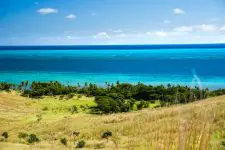
Go where only we can take you.
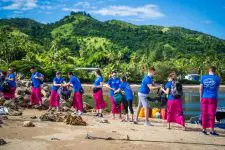
Team of up to 15 participants.

Targeted sustainable development.

Facilitating Fijian Government objectives.
Live in a traditional village, become a member of a Fijian family and work alongside a Fijian youth groups (aged 18-35) as you work to restore local coral reefs together. Develop cross-cultural skills and discuss solutions to achieve key aspects of Fiji’s National Development Plan and the UN Sustainable Development Goals.
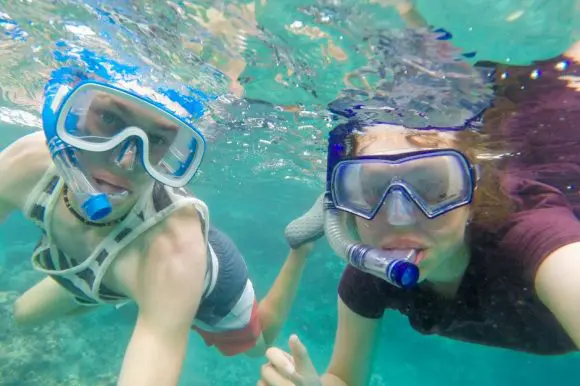
Undertake Field Work and workshop based session alongside a group of Fijian youth group members (18-35 years old) as part of a knowledge transferring initiative under Corals for Conservation. This will involve not only the theory and the outcomes, but physically building A frames, coating Epoxy, snorkeling in outer reef locations and transplanting coral to cooler areas of water, ready for observation and research.

50% of the project’s aims and objectives, you will be on the receiving end of an initiative in partnership with the Ministry of iTaukei Affairs (Arts, Heritage and Culture). You will learn about Fiji’s culture from those who know it best, the youth in your village, as they deliver an interactive cultural education course that boosts their own skills and cultural competency. Appreciating and celebrate traditional Fijian lifestyle specific to each village.
Capacity building and outreach initiative under Corals for Conservation.
“For us, empowerment comes organically when we collaborate, appreciating the perspectives and strengths of others and finding encouragement ourselves.”
The fundamental aim of the project is assisting in community climate adaption. As climate change takes affect on the world, the South Pacific is most vulnerable to its immediate impact with sea levels rising, heat waves, hurricanes, sea temperatures rising… it threatens the livelihoods of those who call Fiji home and the survival of the biodiversity that supports that life and all around it. This project focuses specifically on coral survival in the face of rapidly rising sea temperatures and bleaching. As temperatures are already rising, time is running out to preserve coral species, even if climate change is one day curbed, and this project directly supports the world leading work of Dr Austin Bowden-Kerby and Corals for Conservation under their day to day guidance.
The project in essence is community based training to rescue heat adapted corals which still survive at the upper range of thermal tolerance (35-38C) from nearshore hot pocket reefs, and use them to create patches of bleaching resistant corals on the main reefs, pre-adapted to survive future marine heat waves when nearshore temperatures rise to fatal levels (>40C).
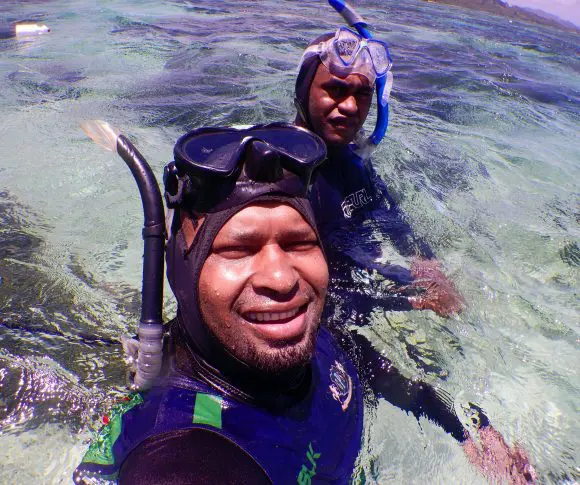
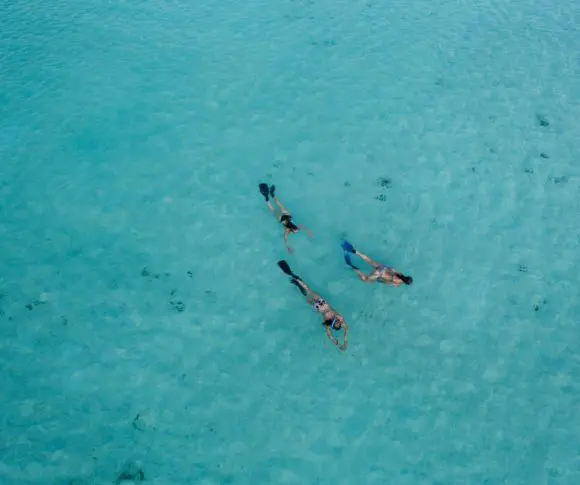
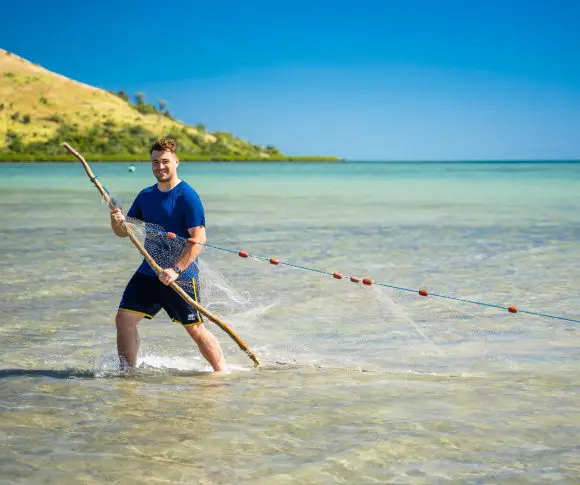
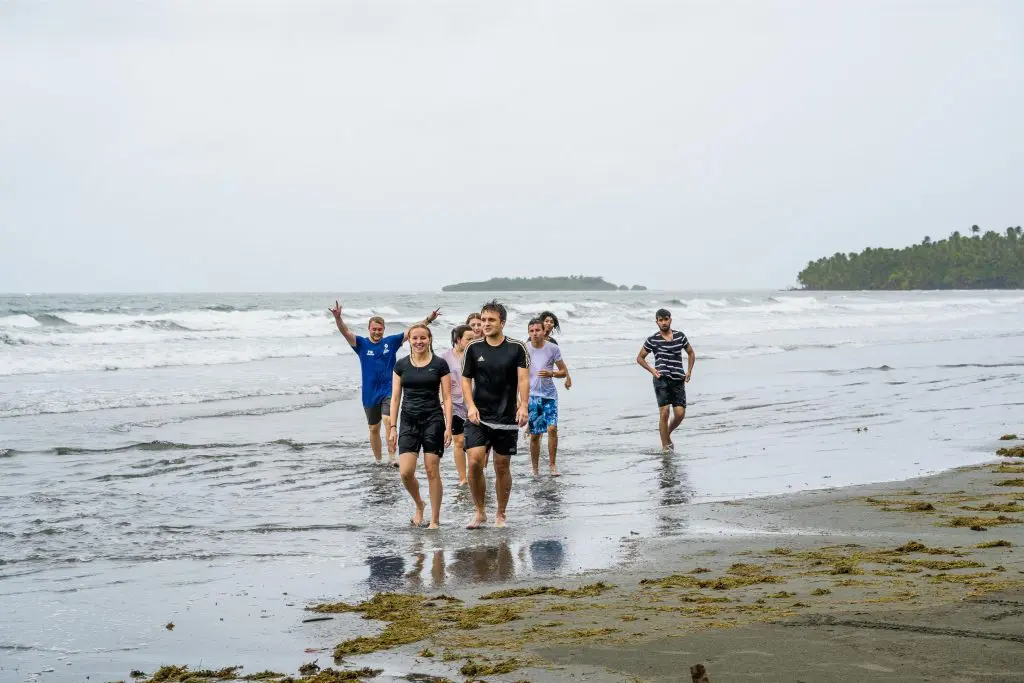
Focus on securing the Acroporidae and Pocilloporidae (Pocillopora, Stylopora and Seriatopora), as both coral families are under the greatest threat of elimination due to rising temperatures.
This will include the following:
- identification of suitable communities
- Capacity building workshops
- Mapping of heat adapted “super corals”
- Scoping for ideal cooler water nursery sites
- Trimming the wild “super corals” and planting within the gene bank nurseries
- Codifying each species and genotype in the nurseries
- Deploy temperature loggers in coral source and recipient areas, mapping of data
- Larval recruitment surfaces deployed around restoration patches in degraded sites as well as into unrestored control sites
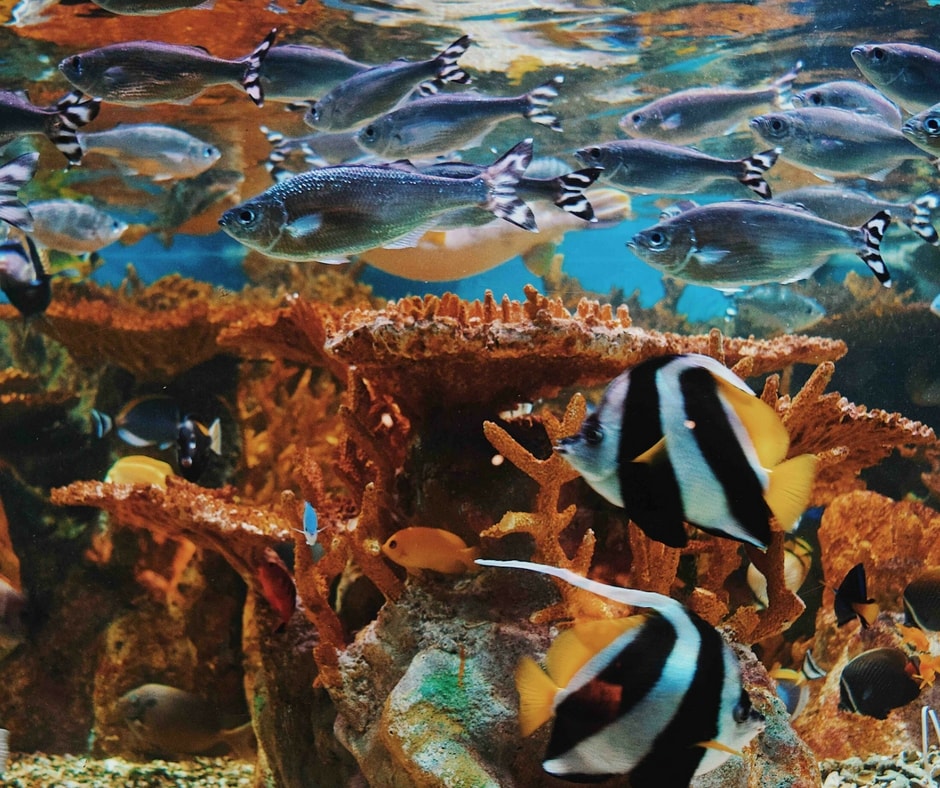
Build bleaching resilience within coral populations using transplanted patches of second generation bleaching resistant corals to facilitate natural adaptation processes through symbiont sharing and cross fertilisation during spawning.
- Scoping for ideal coral restoration sites located among less thermally adapted coral populations as well as on damaged reef areas needing restoration.
- Trimming of second-generation fragments from the nurseries to create out-planting patches, focused on selection of multiple genotypes within each coral species to enable successful spawning within the patch the following year and beyond.
- Out-planting of trimmed coral branches and fragments to create genetically diverse, dense 3×3 metre restoration patches, using multiple species of three coral growth forms (staghorn, tabulate and digitate), to create shelter habitat for obligate coral dwelling fish and invertebrates as quickly as possible.
- Monthly monitoring for coral growth, fish and invertebrate recruitment, and predators, with removal of COTS and coral -killing snails.
- Monitoring for sexual maturity and spawning potential at one year.
- Intensive monitoring during bleaching conditions. This will include mapping of juvenile and adult corals around the patches for evidence of increased bleaching resistance, as compared to control sites.
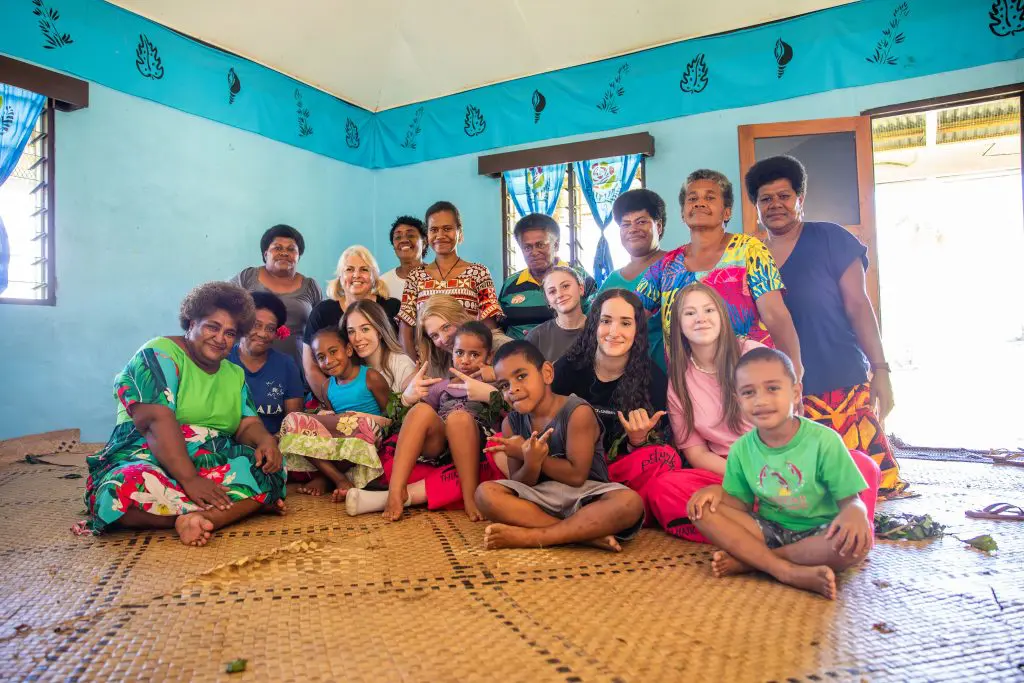
Address poverty driven overfishing and land degradation and associated runoff, by building capacity in sustainable alternative livelihoods, restorative and organic agriculture, and seaweed farming.
- Alternative Livelihoods workshops communities to address climate change impacts on agriculture: drought, flood, and cyclone conditions addressed through restorative agriculture, diversification, permaculture, reforestation, and land/water management.
- Permaculture, native plant, wildlife, and watershed restoration sites established in select communities.
- Happy Chickens alternative protein and agriculture enhancement workshop carried out centrally for all village communities, with follow up: breeding flocks established, and small home hatcheries established for women and youth.
- Post-harvest production of agricultural products workshop and follow up for chocolate, coffee, coconut oil, soap, etc. resulting in the creation of small home businesses.
- Community based tourism, homestay, and tour guide workshop and follow up carried out based on individual interest.
- Seaweed production and post-harvest processing and use workshop and follow up carried out, with seaweed farmers self-selecting and becoming involved with their own business.
- Youth driven coral restoration projects established at various sites in Fiji
The titular focus for this project is stimulating rural youth community member’s engagement on the needs and means of preserving their local coral, in line with the proven successes of Dr. Austin Bowden-Kerby’s work. This, through project based work, comes in two forms.. the practical field work of physically learning strategies to maintain reef health in the face of rising sea temperatures, as well as the conceptual and explanatory Workshop sessions that take alongside them. There are x3 field work days each week on project, with x2 workshops.
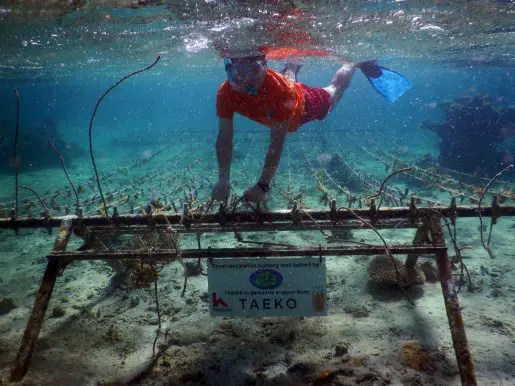
Field work of this project involves the physical delivery of the coral transplantation. This includes:
- Building and coating of A Frames
- Site scoping and mapping
- Physical transplantation of coral from hot pocket location to cooler water.
The volunteers will work alongside the youth under the guidance of project leaders to undertake the aims of the programme.

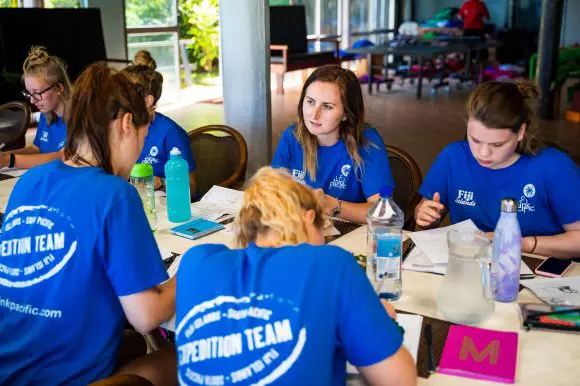
Workshop days provide a break from physically demanding field-days but also provide the essential supplementary theory sessions that inform the sustainability of the work and the background and purpose for it.
Alongside these focused sessions, there is also space to intertwine elements of Think Pacific’s youth empowerment workshops, with a particular focus on Leadership. Not only does this add an extra texture to the working week of the project, but it ultimately invests in the mission of what we are asking programme participants from the community to take up; being leaders within their communities, therefore encouraging attributes and awareness amongst young people in rural areas of Fiji, the leaders of tomorrow, where future change is made real in the next generation.
For you
- Developing intercultural competency and ability to successfully communicate within a foreign cultural environment.
- Adaptability to changes in their own and foreign cultures.
- Tolerance: while working in teams, learn to listen more attentively, to respect each other’s opinion, team-work and team-spirit.
- Learn in-depth about the lifestyle, culture and traditional skills that make up rural Fiji and importantly understand how they all relate and why.
- Personal Skills: personability and set-up of sessions allows them to grow in confidence and communication.
- Appreciation of diversity: appreciation of the opinions and values of others, sensitivity to cultural diversity, and becoming more aware of their own context.
- Broader Perspective: Reconsider the cultural framework they have been brought up in and acquire skills that will enable them to observe and analyse encounters with diversity and to extend these beyond the framework of their own culture.
- Greater depth of understanding Fiji and adding a deeper contextual lens to their field of study.
- Critical thinking.
- Soft skills: Presentation skills, time management, resilience, communication.
- A greater awareness of the direct impact of climate change on Pacific Communities
- Micro credentials in reef restoration
For the Youth
- A greater awareness of strategies of building climate resilience and adaption in communities
- Micro credentials in reef restoration
- Pride in their culture and upbringing and the practising of traditional skills and knowledge.
- To encourage personal growth in the form of a boost in confidence, communication skills, team working, leadership, time management and presentation skills.
- Financial support for those involved and the youth group of the community.
- Any outstanding individuals can be highlighted for scholarship / employment opportunities.
- Appreciation of diversity: appreciation of the opinions and values of others, sensitivity to cultural diversity, and becoming more aware of their culture.
- Broader Perspective: Reconsider the cultural framework they have been brought up in and to acquire skills that will enable them to observe and analyse encounters with diversity and to extend these beyond the framework of their culture.
- Critical thinking.

The official definition of ‘Youth’ in Fiji according to the Ministry of Youth and Sports is anyone between the ages of 18-35. Villages in rural locations in Fiji more often than not have a registered ‘Youth Group’ that is made up of members of the village of that age. The extent to which that group is utilised within the village varies due to member commitments and their re-ignition is a real focus for the current Ministry of Youth.
18-35 year olds in the village often come with a variety of backgrounds and life stories: some may have dropped out of school as early as the age of 14 who engage in farming within the village’s subsistence lifestyle, others may be returning university students or school finishers, but all will be gain from the interactions that the project facilitates. Due to a variety of reasons, rural communities in Fiji have a significantly lower access to opportunity to urban areas and the ‘Youth’ are the primary demographic to be affected by that. This means that fundamentally out projects are outreach initiatives.
The goal of the project will be to place coral reef dependent communities at the forefront of saving coral reefs from collapse due to warming seas. Key to this will be the involvement of community elders’ support and the training and empowerment of local youths to carry out the implementation alongside international volunteers. Experience is that knowledge spreads from community to community, and local initiative can spread the work and carry forward amazing transformations. However, the work must be done correctly at the beginning, and with training in diverse sites, to ensure that the model adopted is both adaptable and appropriate.
Each project will involve and train local youths and must lead to the formation of a I-Yaubula committee in each community if the committee has not already been established. In the case that the committee is active, having key youth members in the committee will be key in ensuring the sustainability of the project.
Once the project ends, the site becomes a C4C site and will be added unto C4C project sites that will be monitored by the C4C team; however the responsibility must be with the local communities to monitor and maintain their coral nurseries until it can function as part of a healthy reef ecosystem.
Ideally, a follow up project could focus on the facilitation of the implementation of the alternative livelihood project that has been identified in the first project and future projects must continue to build on the work being done.
The Government Policy & Strategy Directing Our Projects…
The 20-Year Development Plan provides the forward-looking vision for “Transforming Fiji” towards an even more progressive, vibrant and inclusive society. It outlines a framework that encompasses strategic policy manoeuvres, new approaches to development and the aspirations of all Fijians, underpinned by the UN SDGs – of which our projects are designed to support – all of our projects are designed to support this strategic plan.
Click here to learn more about the Fiji’s National Development Plan












“Culture is how we act, think, and behave based on the shared values of our society. It is everywhere, and we continually develop and define our culture on a daily basis.”
The Culture Course is an experiential learning programme as standard with any rural Think Pacific project. You will be immersed in rural Fijian culture throughout your project but this course intentionally goes deeper! Through immersion, the course aims to educate project participants about the nuances of indigenous Fijian culture through structured sessions delivered by members of the community youth group themselves and Think Pacific leaders.
- Learn skills that are unique to Fiji, regions/provinces or even villages
- See Fijian culture in a light that no tourist can ever see
- Learn about history and identity that defines rural Fijian culture
- Learn skills that have existed in Fiji for around 3000 years
- Engage in a cultural exchange that examines what culture really means, what makes us what we are?
- Support in the empowerment of local community youth as they develop soft skills
- Be at the receiving end of a key initiative in our engagement with the Ministry of iTaukei Affairs
- Present what has been learnt in a final showcase event to the community

The course is set up to encourage an appropriate mindset from participants during the project, facilitate a meaningful experience for them but also works towards wider goals.
Fijian culture can be identified firmly as having an oral tradition – cultural knowledge is not written down and is transferred from generation to generation! A fear for many in Fiji’s current cultural climate that young people are not engaging with integral aspects of local custom and culture and knowledge is being lost. In line with requests from the Ministry of iTaukei affairs, this initiative aims to stimulate engagement with and revitalise local customs and traditions amongst rural youth. It aims to harness a pride in one’s culture and upbringing as well as practicing skills and communicating knowledge that defines the region and Fiji more broadly.
It ensures that all involved are learning cross-cultural skills through experience which they can not only support the rest of the aims during the project, but they can also utilise moving forward.
In addition, it is a clear opportunity to provide those youth leading the course a leadership opportunity, giving them a further platform to develop their soft-skills and boost personal and professional development.

For You:
- Learn in-depth about the lifestyle, culture and traditional skills that make up rural Fiji and importantly understand how they all relate and why.
- Develop inter-cultural competency and the ability to successfully communicate within a foreign cultural environment.
- Adaptability to changes in your own and foreign cultures.
- Tolerance: while working in teams, learn to listen more attentively, to respect each other’s opinion, team-work and team-spirit.
- Personal Skills: personability and set-up of sessions allows you to grow in confidence and communication.
- Appreciation of diversity: appreciation of the opinions and values of others, sensitivity to cultural diversity, and becoming more aware of your own culture.
- Broader Perspective: Reconsider the cultural framework you have been brought up in and acquire skills that will enable you to observe and analyse encounters with diversity and to extend these beyond the framework of your culture.
- Critical thinking.
For Community Youth Members
- Pride in their culture and upbringing and the practicing of traditional skills and knowledge.
- To encourage personal growth in the form of a boost in confidence, communication skills, team working, leadership, time management and presentation skills.
- Financial support for those involved and the youth group of the community.
- Any outstanding individuals can be highlighted for scholarship / employment opportunities
- Appreciation of diversity: appreciation of the opinions and values of others, sensitivity to cultural diversity, and becoming more aware of their culture.
- Broader Perspective: Reconsider the cultural framework they have been brought up in and to acquire skills that will enable them to observe and analyse encounters with diversity and to extend these beyond the framework of their culture.
- Critical thinking.

Central to any rural Think Pacific experience, the course has an agreed and consistent structure that is delivered across all projects. This ‘syllabus’ allows room for local variation of skills and knowledge but also remains consistent across villages. This syllabus therefore is made up of ‘themes’ rather than specific universal sessions.
Four themes explored:
- Identity and Custom, Perspective, Art & Food
These categories are not mutually exclusive as almost all of them will relate to at least another one of those categories. (Eg. Meke would come under the category ‘art’ but can easily also relate to identity and language, even food.)
What they can be used for, however, is structuring each week consistently with other projects whilst allowing for local variations on each category. If x2 sessions from all categories are hit and delivered, that will make up the successful completion of the course.
Course Delivery
x5 key youth members are highlighted by the community prior to your project beginning. These will be consistent members who would be leading delivery. Community youth will lead the sessions based on what they feel comfortable delivering and facilitating within the community and Think Pacific leaders are there to support. They can have free creative license to teach about any aspect of culture they feel passionate about (there may be a unique tradition that they wish to include), and there are a variety of interactive actives that come under the four themes of culture we’re exploring. Every village is unique and therefore every project has its own flavour.

As we have said, every village is different and the youth may wish to teach you skills and knowledge entirely different from what is mentioned below! But if you were interested in the sorts of things that you may get involved with, here are some activities and topics that have been covered in the past:
Identity and Custom
- Fijian Family (family tree and unique relationships)
- Origin stories and local history
- Yaqona (Fiji’s ceremonial drink)
Food
- Farming
- Lovo (traditional method of cooking)
- Cooking at Home
- Fishing / Gathering
Art
- Meke (traditional dance)
- Vucu (traditional song)
- Handicraft (local designs)
- Bilibili (traditional raft building)
- Pottery
Perspective
- The Effects of Globalisation
- Youth Perspective
- Gender Perspectives
- Religious Perspective



Fijian life is incredibly communal and friendly. The entire village live and work together. Fijians farm together, maintaining crop plantations which feed the whole village. They fish together, later dividing their catch, and families will all come together in the evenings to play cards, strum the guitar, chat and dance the night away as they drink Kava.
The villages are all relatively small and close knit communities with usually around 20-50 or so families. During the project, you will stay with your own Fijian family in the village. The Fijian families will treat you as one of their own. If you are lucky, you may also live with a family who has children and your little Fijian brothers and sisters are always so intrigued and incredibly excited by the arrival of visitors from afar! Conditions are basic; expect cold bucket showers, pit toilets and limited electricity.
You will eat with your Fijian family, who provide all of your meals in the community. Think Pacific fund any costs of this food so our teams pose absolutely no burden on the local resources. You may often find many different people at your home for lunch and dinner – in Fiji it is custom to invite anyone who is passing into the home to eat. Food is very carbohydrate heavy, so expect lots of root crops such as dalo and cassava, and also lots of fish, as this makes up the bulk of a typical Fijian diet.
Trust us when we say that there really is nothing like a Fijian village! However, the comparatively basic standard of living, the communal nature, the strong religious beliefs and the traditional customs and values in the village, may take time to adjust to. It is completely normal to feel a little out of your depth in the first few days. With the support of your Fijian family, your team and our leaders, we find it doesn’t take long to adjust to life in the South Pacific.
The majority of Fijians speak both Fijian and English. There may be some language barriers with pronunciation, but as long as you talk slowly and clearly in English there is little difficulty in understanding each other. Young children and some elderly members of the community may not speak any English at all and it’s great to learn a few Fijian words as early as you can.
‘Fiji time’ is something you will soon be accustomed to – and it has the ability to change everything. South Pacific Islanders take everything at their own unique, mystifying and incredibly slow pace. This can sometimes seem frustrating, but don’t let it get to you; its better to smile and take any changes in your stride and welcome this beautiful, relaxed and refreshing way of life!
Hear our Fijian staff talk about life in a Fijian village and follow the village headman (Turaga ni Koro), as he gives you a guided tour of Buliya, Kadavu.
Hear about Fijian culture from one of our Fijian Project Managers.
Hear from community members talking about their experience with Think Pacific…

We pride ourselves on the delivery of a safe, structured and personally supported experience.
Your expedition fee includes your food, accommodation, in-country travel, resort briefings, R&R, weekend activities, emergency support and your expedition leader team living alongside you 24/7. Expeditions also fund the work of the Think Pacific Foundation (Fijian charity FJ 989) enabling us to support thousands of youths annually to ensure sustainability of the aims.
£195 GBP / $345 AUD
This secures your place in the team and gives you access to our Global Skills Programme, an online course to give you the foundations of success before departing for Fiji. It also provides personal support from your project co-ordinator, full access to our pre-departure resources, live online preparation webinars and your expedition t-shirt. Your registration fee is additional to your project fees.
Students can apply for scholarships and bursaries to join our projects in Fiji.
To find out if there’s funding available at your university or in your area, download our funding guide. (Coming soon)

16 Day = £1400 GBP / $2550 AUD
1 Month = £1950 GBP / $3500 AUD
Our philosophy is to provide a high quality and exceptionally well structured volunteer project. Our expeditions are packed full of adventure and cultural insight, whilst having safety and support at their core. Click ‘What’s Included’ below to learn more.

Your travel costs are not included in the project fees. We support you every step of the way to book return flights, personal travel insurance and we process your visa when in Fiji. Please see the approximate costs below within ‘ What’s Not Included’.
Due to the nature of the project, there are some unique requirements that we ask applicants to reflect on prior to applying. As the majority of the project is centered on coral transplanting field work, every applicant must be a strong swimmer prior to applying for the project. Swimming in a Fijian water and working with coral means:
- You need good water stamina
- Ability to snorkel confidently
- Swimming with currents
- Duck diving up to 5 meters
- Being able to equalize in deeper water
We will touch on these skills and practice during your briefing, but if you are unable or not confident to do the above, you may be unable to participate in much of the project.
Having a prior knowledge of coral species and marine biology is not necessary, but it would be a real bonus when applying for this project, especially in supporting in theory discussions. This project is perfect for those with an existing interest in marine biology / climate change, and if these are new subjects that you have never encountered before, we strongly recommend doing some research before departure!
As much of the working environment for this project is the Fijian ocean, there are some bespoke and unique risks associated with it compared to our other projects. There will be trained project leaders who accompany you every step of the way who will keep you safe, but we do want you to be aware of the potential bespoke risks of this project before applying:
- Coral cuts (wear appropriate gear and take care)
- Sea creatures (stingrays, rockfish, jellyfish, etc.)
- Ocean currents (these can sometimes make staying in one spot a bit of a workout)
- Sun burn (snorkeling will increase the chance of sunburn and Fiji has very high UV, bring plenty of ocean friendly suncream and wear rash vests / long sleeved tops in the water)
Sharks are common in Fiji and you may well encounter them during your field work… they are harmless and the ones you will see will likely be small reef sharks! But if you are particularly scared of sharks and this would affect your experience on the project, make sure to really think about whether you are willing to take on the challenge!
Make sure snorkeling and boat travel is covered under your travel insurance
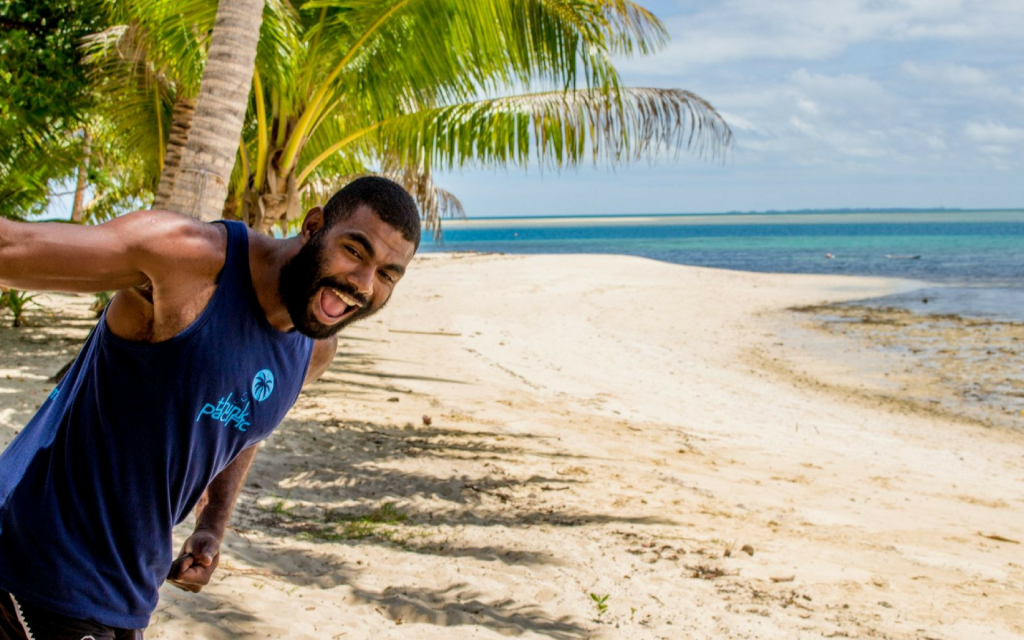
Think Pacific works in partnership with many universities across the world to support student mobility and employability. There are scholarships and grants available for students from individual university departments and/or governments in several countries.
Students can apply for scholarships and bursaries to join our projects in Fiji. To find out if there’s funding available at your university or in your areas, click here to download our funding guide.
If you have any questions about funding prior to our funding guide being launched, please email info@thinkpacific.com.
Our philosophy is to provide a high quality and exceptionally well structured international project. Our expeditions are packed full of adventure and cultural insight, whilst having safety and support at their core. We also ensure that through our charity, the communities you support receive long-term financial and physical assistance year-round. Think Pacific is not the cheapest volunteer organisation around, but this is for all the right reasons.
All our expeditions include:
- Airport welcome by Think Pacific Expedition leaders (or resort meet and greet if you arrive early).
- All in-country project-related travel.
- All project accommodation.
- Briefing and orientation at a resort.
- All meals during your briefing, 3 and a half weeks staying with your Fijian village family and during your final day of R&R.
- Guided weekend activities such as a short trek or attending community events.
- Organised evening Fijian activities including kava ceremonies, lovo feasts, mat weaving,
- Think Pacific Leaders and Fijian guides living with you 24/7.
- In-country Director, Fiji based Project Managers and UK team providing planning, risk assessment and 24-hour back up support.
- Comprehensive pre-departure information & personal project planning.
- Your project donation towards the youth development goals in Fiji (which is used to purchase educational and sports equipment, fund scholarships and training for local people and build village facilities and school classrooms)
- Snorkel Equipment (Face mask and Fins)
What’s Not Included?
- International flights – £100 – £1200
- Personal travel insurance £60-£100
- Spending money for extra food and snacks, Fijian clothes and items of a personal nature (we advise bringing £200 – £300 spending money).
Apply for university funding to cover flights and insurance.
- Access to the Pre-departure Portal.
This portal provides the step-by-step process to prepare for Fiji, including fundraising information, flight information, kit list, visa, cultural preparation. Student can watch videos with our team in Fiji and download document.
- Contact our team.
You can contact our team anytime between office hours, either give us a call on 0113 335 9919 or email; info@thinkpacific.com.
- Online community/network.
You can communicate with fellow volunteers, alumni and our team through our online community, hosted on the Might Network app. Within 3 months of you departing to Fiji, you shall be entered into a private group with your volunteer team.
- Live Pre Departure webinars
Our team host live sessions in the months leading up to your project. These are a great way for you to ask questions and delve deeper into planning for your project. They also add to the excitement!
- Global Skills Programme
We have created an online course to give you the set you up for success before departing for Fiji! Complete short-courses in: Fijian Culture, Sustainable Development & Global Leadership.
1-Month Project
- Briefing (3 nights) = Resort Accommodation
- Project aims (23 nights) = Traditional village homestay
- Rest & reflection = (1 nights) = Accommodation in Nadi
1-Month Project Dates 

28th Sept – 25th Oct 2024
20th Nov – 17th Dec 2024
27th Jan – 23rd Feb 2025
17th March – 13th April 2025
5th May – 1st June 2025
4th June – 1st July 2025
15th June – 12th July 2025
22nd June – 19th July 2025
23rd June – 20th July 2025
30th June – 27th July 2025
9th July – 5th August 2025
20th July – 16th August 2025
27th July – 23rd August 2025
28th July – 24th August 2025
4th August – 31st August 2025
27th September – 24th October 2025
24th January – 20th February 2026
16-Day Project Dates 

28th Nov – 13th Dec 2024
20th Jan – 4th Feb 2025
21st June – 6th July 2025
12th July – 27th July 2025












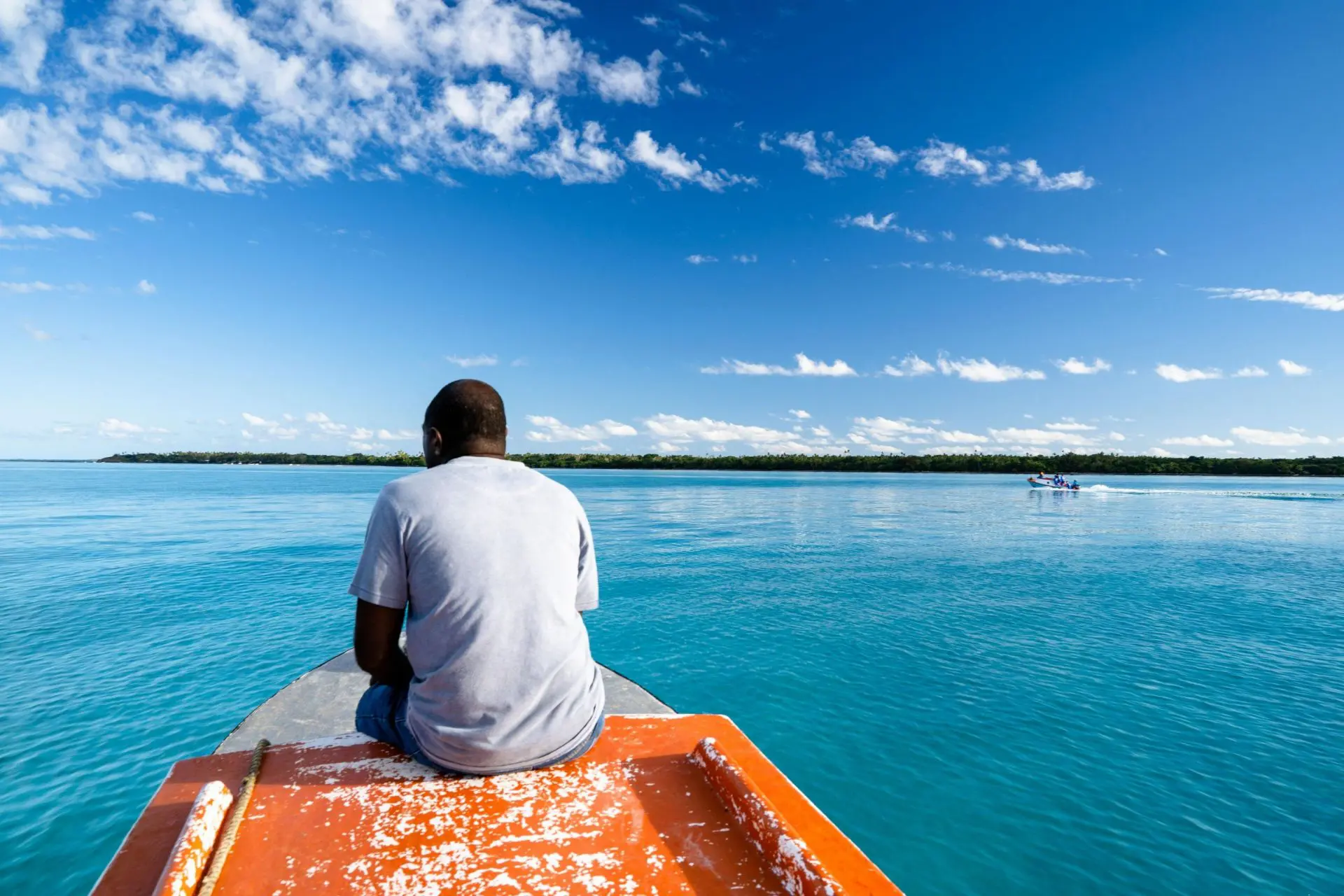


 👇
👇